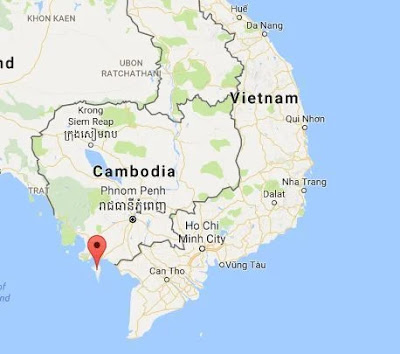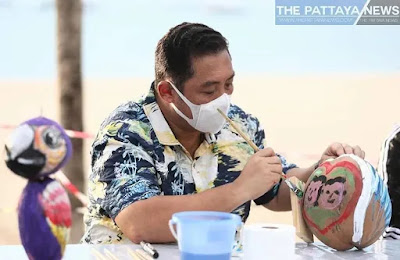Tokyo, Seoul, mainland China's Guangzou city, Taiwan and Laos are among destinations being considered for early reopening of international flights, the government said.
The consideration is based on the condition of places that have had no new Covid-19 cases for at least 30 days, the Government Office said in a statement Wednesday, citing a prime ministerial directive.
Prime Minister Nguyen Xuan Phuc has directed that the flights should undertake strict anti-pandemic measures in line with the Health Ministry’s regulations.
The premier assigned the National Steering Committee for Covid-19 Prevention and Control the task of drafting a list of safe countries and territories where there have been no new cases for at least 30 days, saying these destinations will be prioritized for the resumption of international flights. "There must be guidelines on quarantine for those entering the country via such flights."
Phuc had earlier said that it was impossible for the country to remain completely closed to international flights, but the reopening has to be done carefully and with consideration for the disease safety level in the countries or territories involved.
Vietnam's entry suspension for foreign nationals since March 22 is still in effect, as is one on international flights since March 25. Only those with diplomatic or official passports, or coming for special economic projects, are allowed to enter the country and are quarantined upon arrival. It has also granted permission for some special flights to repatriate Vietnamese citizens stranded abroad.
Domestic flights have resumed since April.
Japan, South Korea and Taiwan are also considering the reopening of international flights with Vietnam, foreign media reported.
Japan has banned entry by foreigners but is considering allowing business travelers from Australia, New Zealand, Thailand and Vietnam who test negative for Covid-19 both while leaving their home country and arriving in Japan, said Asahi Shimbun, a Japanese national newspaper.
South Korea is planning a limited resumption of international flights to certain destinations including Vietnam, which has garnered international acclaim for its effective dealing of the Covid-19 pandemic.
With a population of over 96 million, Vietnam has reported just 332 infections. Of this, 319 have recovered after treatment and no deaths recorded.
Meanwhile, Taiwan’s Minister of Health and Welfare, Chen Shih-chung, had said last month that only a few countries could meet its requirements for resuming flights based on objective data. The minister said he thinks that New Zealand and Vietnam are the most likely countries to open up in the first wave, Taiwan News reported.
Though Vietnam has yet to open its doors to international visitors, the National Steering Committee for Covid-19 Prevention and Control had said at a meeting on May 28 that the tourism industry could pilot a plan to welcome foreign tourists to island destinations on a trial basis with strict safety measures in place.
Phu Quoc, Vietnam's largest island in the Mekong Delta province of Kien Giang, was on the list of priority island destinations.
Due to border closures and flight suspensions, Vietnam's number of foreign visitors in the first five months was 3.73 million, a 48.8 percent year-on-year decline.
The country has gone nearly two months without community transmission of the disease.
The consideration is based on the condition of places that have had no new Covid-19 cases for at least 30 days, the Government Office said in a statement Wednesday, citing a prime ministerial directive.
Prime Minister Nguyen Xuan Phuc has directed that the flights should undertake strict anti-pandemic measures in line with the Health Ministry’s regulations.
The premier assigned the National Steering Committee for Covid-19 Prevention and Control the task of drafting a list of safe countries and territories where there have been no new cases for at least 30 days, saying these destinations will be prioritized for the resumption of international flights. "There must be guidelines on quarantine for those entering the country via such flights."
Phuc had earlier said that it was impossible for the country to remain completely closed to international flights, but the reopening has to be done carefully and with consideration for the disease safety level in the countries or territories involved.
Vietnam's entry suspension for foreign nationals since March 22 is still in effect, as is one on international flights since March 25. Only those with diplomatic or official passports, or coming for special economic projects, are allowed to enter the country and are quarantined upon arrival. It has also granted permission for some special flights to repatriate Vietnamese citizens stranded abroad.
Domestic flights have resumed since April.
Japan, South Korea and Taiwan are also considering the reopening of international flights with Vietnam, foreign media reported.
Japan has banned entry by foreigners but is considering allowing business travelers from Australia, New Zealand, Thailand and Vietnam who test negative for Covid-19 both while leaving their home country and arriving in Japan, said Asahi Shimbun, a Japanese national newspaper.
South Korea is planning a limited resumption of international flights to certain destinations including Vietnam, which has garnered international acclaim for its effective dealing of the Covid-19 pandemic.
With a population of over 96 million, Vietnam has reported just 332 infections. Of this, 319 have recovered after treatment and no deaths recorded.
Meanwhile, Taiwan’s Minister of Health and Welfare, Chen Shih-chung, had said last month that only a few countries could meet its requirements for resuming flights based on objective data. The minister said he thinks that New Zealand and Vietnam are the most likely countries to open up in the first wave, Taiwan News reported.
Though Vietnam has yet to open its doors to international visitors, the National Steering Committee for Covid-19 Prevention and Control had said at a meeting on May 28 that the tourism industry could pilot a plan to welcome foreign tourists to island destinations on a trial basis with strict safety measures in place.
Phu Quoc, Vietnam's largest island in the Mekong Delta province of Kien Giang, was on the list of priority island destinations.
Due to border closures and flight suspensions, Vietnam's number of foreign visitors in the first five months was 3.73 million, a 48.8 percent year-on-year decline.
The country has gone nearly two months without community transmission of the disease.
Source - VN Express



























